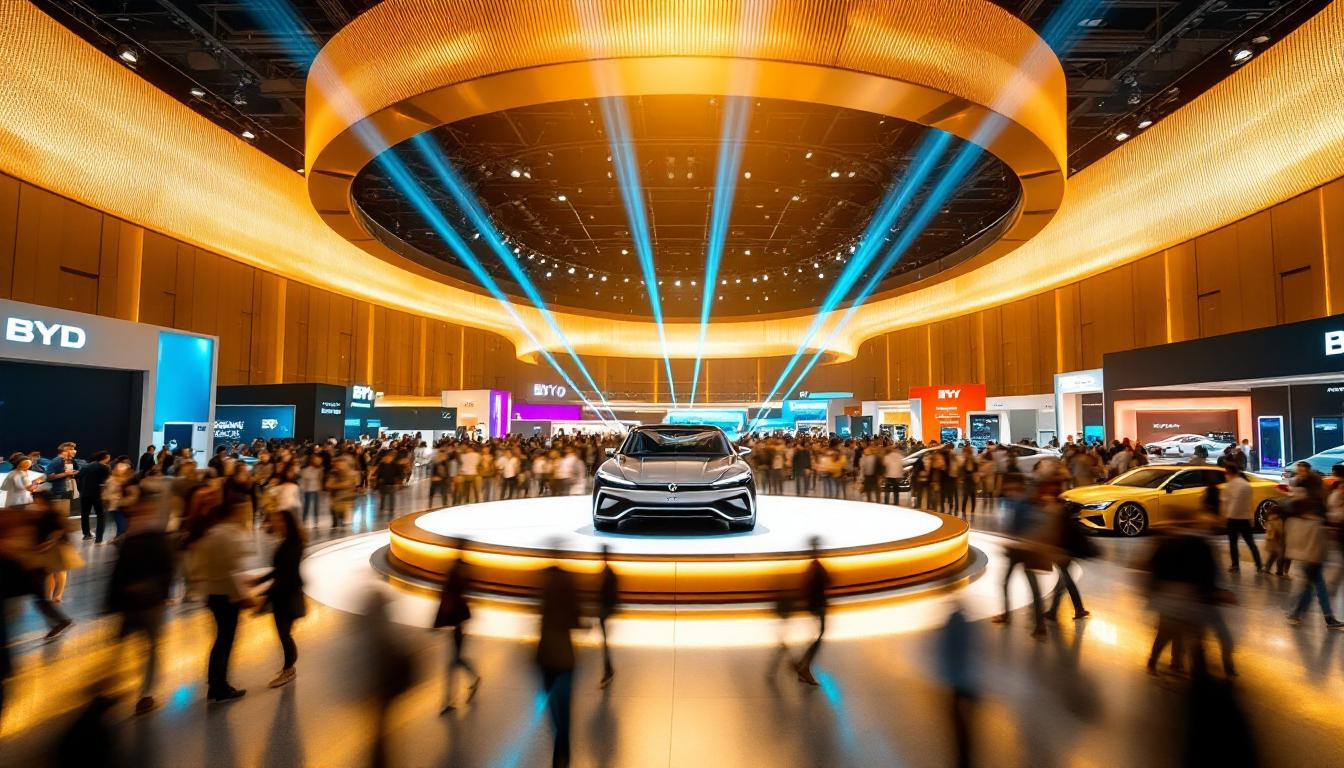The 46th Bangkok International Motor Show kicks off today, transforming Thailand’s automotive landscape with its boldest showcase yet. Running from March 26 to April 6, 2025, at IMPACT Muang Thong Thani, this spring’s exhibition welcomes over 1.6 million visitors under the captivating theme “The Talk of Sensuous Automotive.”
Chinese brands surge as Thai market evolves
The most striking development at this year’s show is the unprecedented dominance of Chinese manufacturers. With 15 Chinese brands including BYD, Zeekr, and Geely making impressive displays, the traditional Japanese and European stronghold faces serious competition.
“Chinese automakers have completely changed the game in Southeast Asia,” notes automotive analyst Somchai Pattana. “Their aggressive pricing strategies combined with cutting-edge technology are challenging decades of Japanese dominance in Thailand.”
Electric revolution takes center stage
Electric mobility dominates the exhibition halls, reflecting global industry trends. Tesla, BYD, NIO, and Xpeng showcase their latest innovations alongside traditional manufacturers rushing to electrify their lineups, similar to Lancia’s recent electric comeback in Europe.
The Mazda 6e BEV stands out among debuts, signaling Mazda’s serious electric ambitions. This model represents an interesting contrast to the brand’s recent return to performance coupes in other markets.
Range anxiety solutions emerge
“Thailand’s charging infrastructure has improved dramatically,” explains Dr. Nattaporn Jirajariyavech, electric mobility expert. “The latest generation EVs offer practical ranges exceeding 400km, transforming them from niche products to mainstream options.”
This development addresses concerns similar to those explored in recent Tesla vs BMW range comparisons, showing how quickly EV practicality is evolving across global markets.
Hybrid technology bridges the gap
Hybrid vehicles remain crucial transitional technologies, with standouts including:
- Mitsubishi XForce Hybrid – compact crossover with enhanced fuel efficiency
- Honda City e:HEV – urban-friendly sedan with impressive economy
- Toyota’s expanded hybrid lineup – demonstrating remarkable battery longevity
“Hybrid technology provides the perfect stepping stone for consumers,” says engineering director Thanawat Saengjaeng. “These systems have proven incredibly reliable, with batteries lasting hundreds of thousands of miles in real-world conditions.”
Digital experiences redefine vehicle ownership
Huawei’s automotive division showcases advanced cockpit technology that transforms vehicles into connected digital platforms. These systems function like smartphones on wheels, integrating entertainment, navigation, and vehicle diagnostics into intuitive interfaces.
Interestingly, the show also features virtual driving simulators that mimic the actual driving characteristics of displayed vehicles – echoing how sim-racing creates better real-world drivers.
A glimpse of Thailand’s automotive future
This year’s Bangkok Motor Show transcends being merely a car exhibition; it’s a window into Thailand’s evolving mobility landscape. With Chinese manufacturers challenging established players, electric vehicles gaining mainstream acceptance, and digital technology transforming the driving experience, the automotive sector stands at a fascinating crossroads.
As the vehicles on display suggest, Thailand’s car market is embracing a future where electric performance, digital integration, and sensuous design converge – creating not just transportation, but emotional connections between drivers and their increasingly sophisticated machines.
